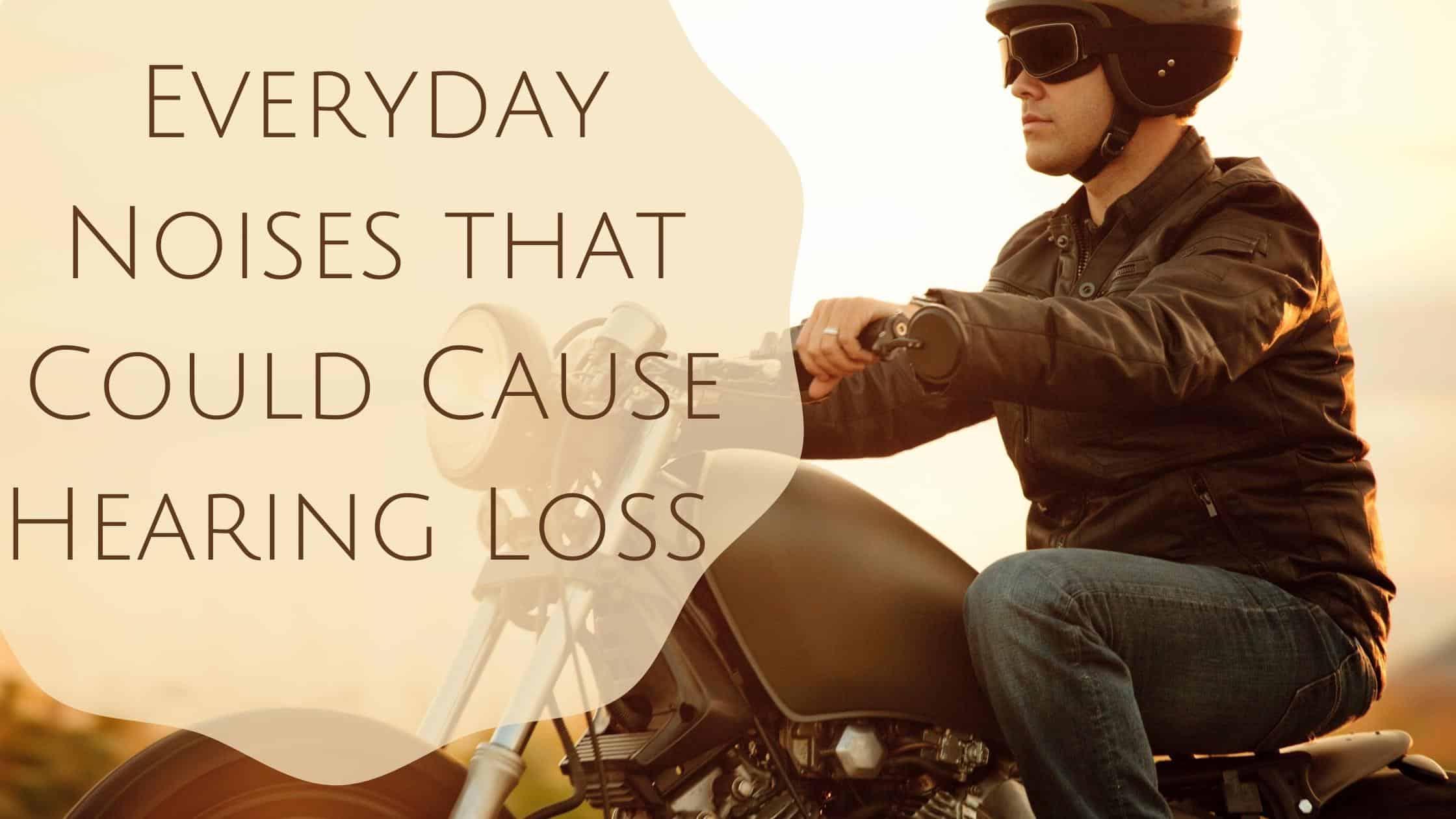- Meeting Someone With Hearing Loss - April 15, 2024
- How Your Hearing Health Influences Your Overall Health - April 5, 2024
- Urban Soundscapes: Navigating Busy Environments with Hearing Aids - March 26, 2024
Emergency sirens and loud fireworks aren’t the only sounds that can harm your hearing. There are a number of everyday noises that could cause hearing loss! Here are some of the everyday noises that are dangerously loud.
Noise-Induced Hearing Loss
Ordinary sounds do a lot more damage than you might think. You’re used to your noisy lawnmower or leaf blower, but that doesn’t mean these sounds are safe. Any noise that’s louder than 85 decibels (dB) can cause hearing loss. According to the Centers for Disease Control and Prevention, 17% of adults aged 20 to 69 have permanent noise-induced hearing loss!
If you’re exposed to noises that are 85dB, you won’t experience hearing loss right away. It will take several hours to damage the cells in your ears. However, when you’re exposed to sounds that are 100 dB or more, hearing loss happens much faster! And when you’ve been surrounded by very loud noise, you can experience permanent hearing loss in just a few minutes.
Everyday Noises that Harm Your Ears
You may be surprised to find out what everyday noises can cause hearing loss.
- Watching a movie at the theatre: Did you know that watching movies on the big screen can harm your hearing? During speaking scenes or quiet moments, the volume in the movie theatre is safe. But action scenes sometimes top 105dB!
- Seeing your favorite band: A light concert is extremely loud, especially if you’re near some speakers. The volume can range from 95 to 115dB.
- Mowing the lawn: Older lawn mowers are very noisy. Your lawnmower could be up to 95dB.
- Attending a sports event: catching a game in the stadium might be your weekend highlight, but make sure you take your earplugs. Full stadiums can expose you to noise that’s 110dB.
- Turning up your music: A major source of hearing loss for teens and adults is listening to music with earbuds or headphones. Listening with the volume on high can send sounds of 110dB directly to your ears.
- Hearing a siren: If you’re standing near an emergency siren, cover your ears. This shrill sound is between 110 to 130dB.
- Operating power tools: If you have a saw, drill, or another power tool, wear hearing protection. On average, these tools are 100 to 110dB.
- Driving a motorcycle: Hitting the open highway on your motorcycle is louder than you might think. The engine can be noisy, but the main source of noise is the wind, which can be around 90dB.
- Watching fireworks: If you’re taking your family to see the fireworks display, pick a viewing spot as far away as possible. Fireworks at close range are extremely loud, producing sounds up to 160dB.
- City traffic: Commuting to work can be noisier than you think. Busses and trains are very loud, and traffic can be 95dB.
Living in a Noisy World
We’re constantly surrounded by noise. Our homes, neighborhoods, and workplaces can all be very noisy, and on weekends we enjoy loud leisure activities. Even the sounds in your home, like your kitchen appliances, your blow dryer, or your air conditioner can be dangerously loud.
Take some time to evaluate the noises you hear every day. You can even download a free decibel reader app on your smartphone to find out just how loud your everyday life really is. If you regularly hear noises that could damage your hearing, learn more about hearing protection and how you can prevent permanent hearing loss.
Protecting Your Hearing
Noise-induced hearing loss is preventable! To reduce your risk of hearing loss, start by limiting the length of time you’re exposed to loud noise. If you can’t reduce the noise or leave the location, always wear hearing protection. Foam or wax earplugs are a great option when you need short-term hearing protection. If you’re exposed to loud noise every day, you can research earmuffs or digital hearing protection that further reduces the volume of sounds and protects your hearing long term.
Are you worried that you may have noise-induced hearing loss? Contact us today! Our team of hearing health specialists will help you learn more about your hearing loss. We’ll also suggest the right treatment option to match your hearing needs.

